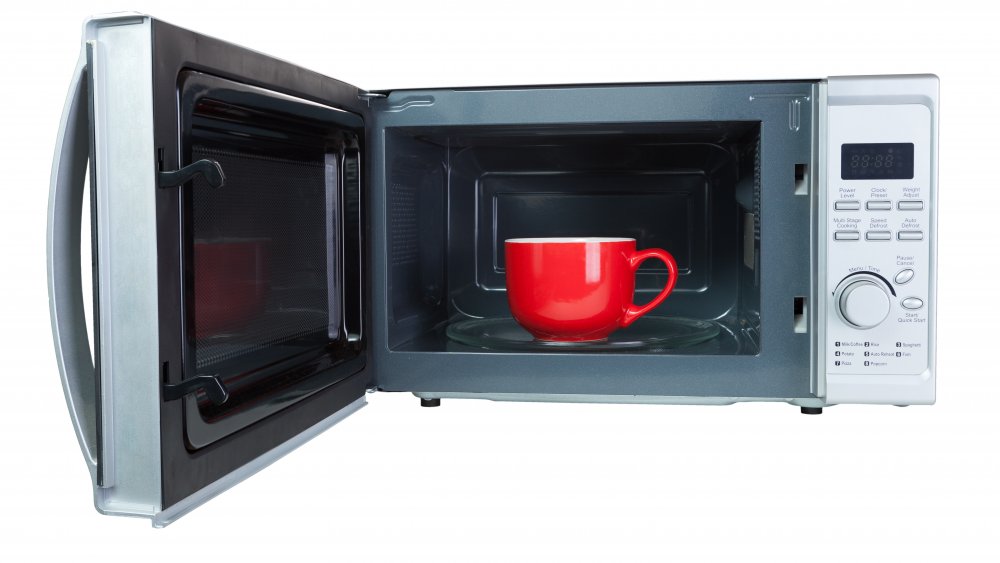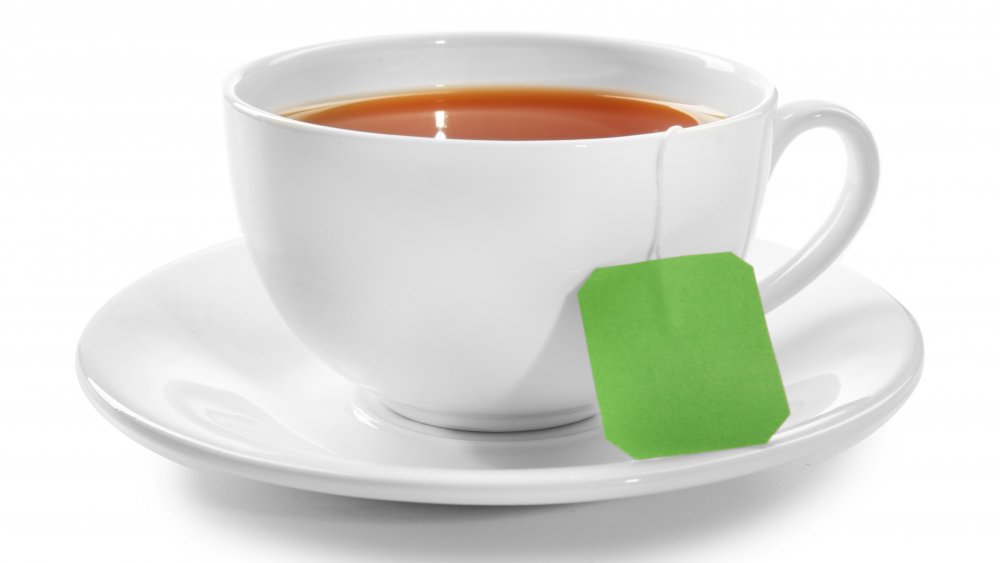You Should Never Microwave Your Tea. Here's Why
If you drink a lot of tea, you probably have a kettle of some sort, either a stovetop model or an electric one. If you're more of an occasional tea drinker, however, you may just stick to heating up your tea water in the microwave. Well, stop it. Why, you may ask? Because the American Institute of Physics says so, that's why. Who would dare argue with them? High school physics teachers are scary enough, but an entire institute of physicists is another story.
Anyway, hypothetical irate scientists aside, the AIP recently published a study we're not even going to pretend to have read called "Multiphysics analysis for unusual heat convection in microwave heating liquid." We did, however, read the thrilling conclusion revealing the fact that microwaves heat liquids unevenly and create hot spots. If you want your tea to steep properly, having all of the water in the cup at a uniform temperature is probably going to yield better results. It doesn't take a rocket scientist (or a physicist) to see that.
Nuking your tea can also be dangerous
There is one more reason why microwaving water for tea should be avoided if at all possible, and this reason may be even more compelling since it's based more on safety than tea quality. In fact, you may have already experienced this scary phenomenon where you zap a mug of water, drop in a teabag, and then what just happened?! Suddenly your cup runneth over, spewing hot liquid everywhere like a mini water volcano. If you don't jump back in time, you may wind up with a few nasty burns.
If you thought this was something that only happened to you, perhaps because your family is under some ancient microwave-related curse dating back to the time when you tried to nuke a Pop-Tart in the foil wrapper, but there's no need to hire an exorcist. It's actually a real phenomenon called superheated water, according to the General Electric website. (They say this information can also be found in your microwave manual, although who among us has actually ever read the darn thing?)
Evidently microwaved liquids can reach the boiling point without forming bubbles, but then once the liquid is agitated (like when you drop in a teabag), it will bubble up and out of the cup. GE recommends that in order to avoid this, you never heat any liquid for more than 2 minutes, and you then let the cup sit in the microwave for 30 seconds before touching it.

